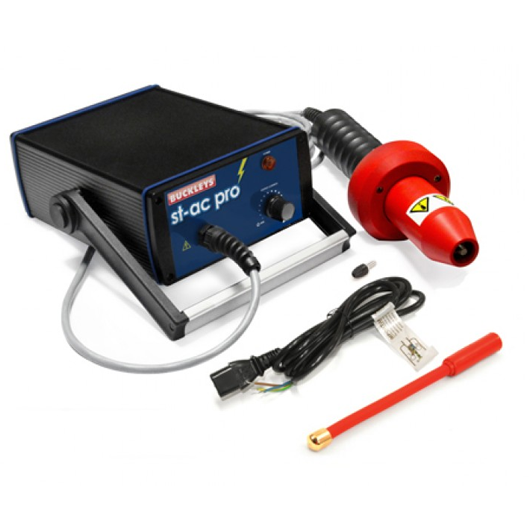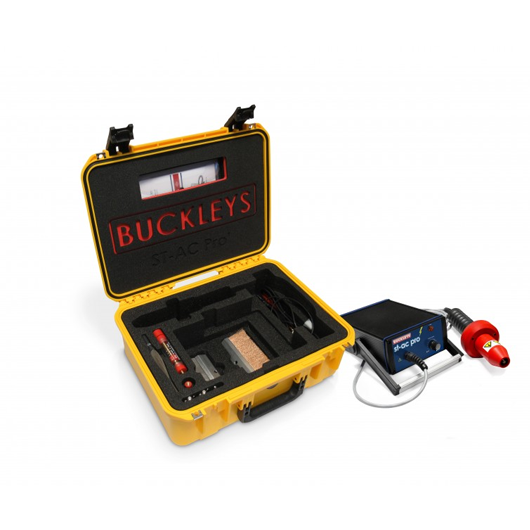What is a Spark Tester?
An AC spark tester is a device which provides a high-voltage AC current via an electrode for testing non-conductive membranes, coatings and linings over conductive materials. Unlike DC holiday detectors, the AC output enables the detection of holes in coatings without requiring an earth return connection from the conductive material to the spark tester.
AC spark testers do not have an alarm mechanism and require the operator to observe and note sparks from the electrode, through the coating to the conductive material. AC spark testers have no sensitivity adjustment.
Setting output voltage of an AC spark tester is not as accurate as a DC holiday detector and the output voltage is estimated by the size of air gap a spark will jump, rather than by calculating the dielectric strength of a non-conductive coating.
AC spark testers are well-suited to testing thicker coatings and where an earth-return connection is not possible; such as dip-applied coatings or welded plastic fabrications with a conductive test wire embedded within the weld bead.
Whilst AC spark testers generally cost less than DC holiday detectors, they are not a practical alternative and are better suited to applications where less precision of output voltage is acceptable.





